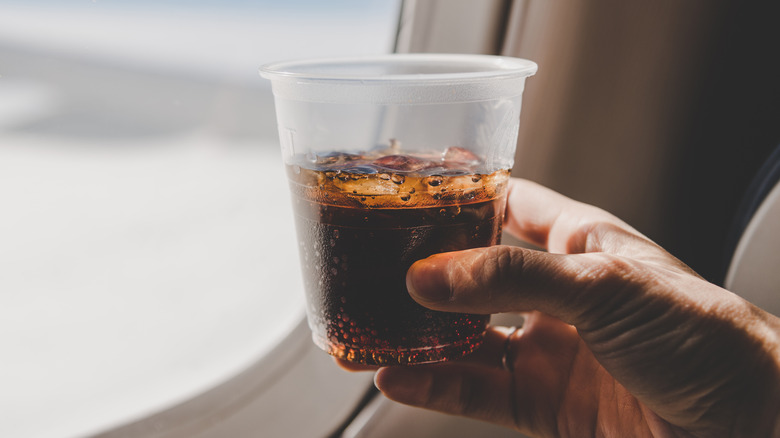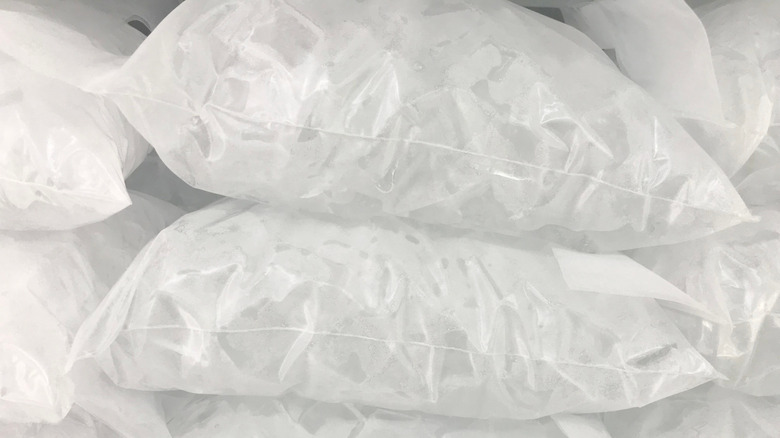Why You Should Never Order A Drink With Ice On An Airplane
You may have heard that you should never order coffee or tea on an airplane because airplane tap water might contain illness-inducing E. coli bacteria. A 2015 study published in the International Journal of Environmental Research and Public Health showed that factors such as cleanliness of the water service vehicle, which brings water to each aircraft, the temperature of that service vehicle, and the temperature of the water itself affect microbial counts in tap water on airplanes — the water in your coffee or tea.
If tea and coffee are off the drinks list, how will you get your daily caffeine? A soft drink could be a good substitute. However, you might want to think twice before accepting the cup of ice your flight attendant offers.
Major airlines buy bagged ice from commercial suppliers, but there's a chance that this ice could be contaminated. Once onboard, bagged ice cubes are stored in chillers that use dry ice, liquid coolant, or reusable freezer blocks to keep frozen items at the correct temperature (That's why the cubes freeze together). However, a 2017 study published in the Annals of Microbiology showed that some disease-causing bacteria can survive in ice, even commercially packaged ice.
Frequent fliers are familiar with the sound of flight attendants' attempts to break apart chunks of ice cubes that have frozen together. Redbook talked with a flight attendant named Max, who explained sometimes the flight attendant's ice-breaking tool punctures the plastic ice bag, potentially contaminating the ice inside.
Airplane tap water presents contamination problems, too
According to food safety expert Melvin Kramer, flight attendants can accidentally contaminate ice cubes by using incorrect food handling procedures or scooping and storing the ice with poorly cleaned utensils and bins (via CNBC). Even if flight attendants wash the ice scoops or wash their hands regularly, there's no way to know whether the aircraft's water supply is safe at that exact moment. It's impossible to guarantee that ice cubes on your flight won't be adulterated, whether they are purchased from commercial suppliers or made onboard.
Under the Aircraft Drinking Water Rule, airlines that fly between two or more locations in the United States have to test aircraft water systems regularly. They also have to disinfect and flush aircraft water tanks. In 2019, the Hunter College NYC Food Policy Center and DietDetective.com published their Airline Water Study, which found that only three major United States airlines (Alaska Airlines, Allegiant Air, and Hawaiian Airlines) and one regional airline (Piedmont Airlines) had water safety scores at or above 3.0, the acceptable water safety score on a 1.0 to 5.0 scale.
If you simply must have your ice, the TSA will let you bring ice cubes onboard in a small plastic bag. Pour off accumulated meltwater before going through security and again before boarding the aircraft.

